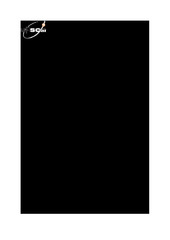| dc.contributor.author | Matuhara, Yan Eiji | |
| dc.date.accessioned | 2021-06-14T20:32:27Z | |
| dc.date.available | 2021-06-14T20:32:27Z | |
| dc.date.issued | 2019-12-12 | |
| dc.identifier.citation | MATUHARA, Yan Eiji. O olhar do intérprete educacional sobre o professor e as aulas de biologia. 2019. Trabalho de Conclusão de Curso (Graduação em Ciências Biológicas) – Universidade Federal de São Carlos, São Carlos, 2019. Disponível em: https://repositorio.ufscar.br/handle/ufscar/14380. | * |
| dc.identifier.uri | https://repositorio.ufscar.br/handle/ufscar/14380 | |
| dc.description.abstract | The advent of school inclusion brought the presence of deaf students to regular schools. In order to maintain quality, some measures had to be taken, such as the regularization of the profession of the educational interpreter, the professional responsible for mediating communication between deaf and hearing people. However, the Brazilian Sign Language, Libras, is very recent in our country, and several specific terms from the academic world are still not dictionized or are being created. Biology is one of those areas that, in addition to being full of specific terminology, has non-visible or even microscopic contents. Considering that the interpreter has a generalist training, we aim to find out what are the main difficulties they face when interpreting, as well as the strategies and resources they use to overcome them, together with professionals who work in high school. In this qualitative and exploratory study, we interviewed and analyzed the discourse of two educational interpreters regarding their practice during biology classes. The interviews were carried out at the Federal University of São Carlos. The analyzes were built through the presentation of excerpts from the interview, with theoretical basis in studies on deafness and education. The results indicate difficulties in relation to the partnership with the regent teacher, with the necessary adaptations for deaf students and also with regard to the lack of specific lexicon in sign language. Given the findings, we highlight some possible strategies, but we emphasize the urgent need for further research, involving deaf people and biologists, so that the area of biology can be studied in depth. Only with a refined linguistic repertoire in specific areas will deaf people have equal opportunities and access to knowledge as hearing individuals. | por |
| dc.description.sponsorship | Não recebi financiamento | por |
| dc.language.iso | por | por |
| dc.publisher | Universidade Federal de São Carlos | por |
| dc.rights | Attribution-NonCommercial-NoDerivs 3.0 Brazil | * |
| dc.rights.uri | http://creativecommons.org/licenses/by-nc-nd/3.0/br/ | * |
| dc.subject | Biologia | por |
| dc.subject | Intérprete Educacional | por |
| dc.subject | Libras | por |
| dc.title | O olhar do intérprete educacional sobre o professor e as aulas de biologia | por |
| dc.title.alternative | The educational interpreter's view on the teacher and the biology classes | por |
| dc.type | TCC | por |
| dc.contributor.advisor1 | Santos, Lara Ferreira dos | |
| dc.contributor.advisor1Lattes | http://lattes.cnpq.br/7312070448044165 | por |
| dc.description.resumo | O advento da inclusão escolar trouxe consigo a presença de alunos surdos às escolas regulares. Para sua permanência de qualidade, algumas medidas tiveram de ser tomadas, como a regularização da profissão do intérprete educacional, profissional responsável por mediar a comunicação entre surdos e ouvintes. No entanto a Língua Brasileira de Sinais, Libras, é muito recente em nosso país, e diversos termos específicos do meio acadêmico ainda não são dicionarizados ou estão em criação. A biologia é uma dessas áreas que, além de ser repleta de terminologias específicas, possui conteúdos não visíveis ou mesmo microscópicos. Tendo em vista que o intérprete possui uma formação generalista, objetivamos averiguar quais as principais dificuldades enfrentadas por eles ao interpretarem, bem como as estratégias e recursos que utilizam para superar as mesmas, junto a profissionais que atuam no ensino médio. Neste estudo, qualitativo e exploratório, entrevistamos e analisamos o discurso de duas intérpretes educacionais quanto a sua prática durante as aulas de biologia. As entrevistas foram realizadas na Universidade Federal de São Carlos. As análises foram construídas através da apresentação de trechos da entrevista, com embasamento teórico nos estudos sobre a surdez e a educação. Os resultados indicam dificuldades em relação à parceria com o professor regente, com as adaptações necessárias aos alunos surdos e também no que diz respeito à falta de léxico específico na língua de sinais. Diante dos achados destacamos algumas estratégias possíveis, mas frisamos a necessidade urgente de novas pesquisas, envolvendo surdos e biólogos, de forma que a área da biologia possa ser estudada profundamente. Somente com repertório linguístico refinado em áreas específicas os surdos terão igualdade de oportunidades e acesso ao conhecimento como os ouvintes. | por |
| dc.publisher.initials | UFSCar | por |
| dc.subject.cnpq | CIENCIAS BIOLOGICAS::BIOLOGIA GERAL | por |
| dc.publisher.address | Câmpus São Carlos | por |
| dc.contributor.authorlattes | http://lattes.cnpq.br/0423269209507957 | por |
| dc.publisher.course | Ciências Biológicas - CBL | por |

